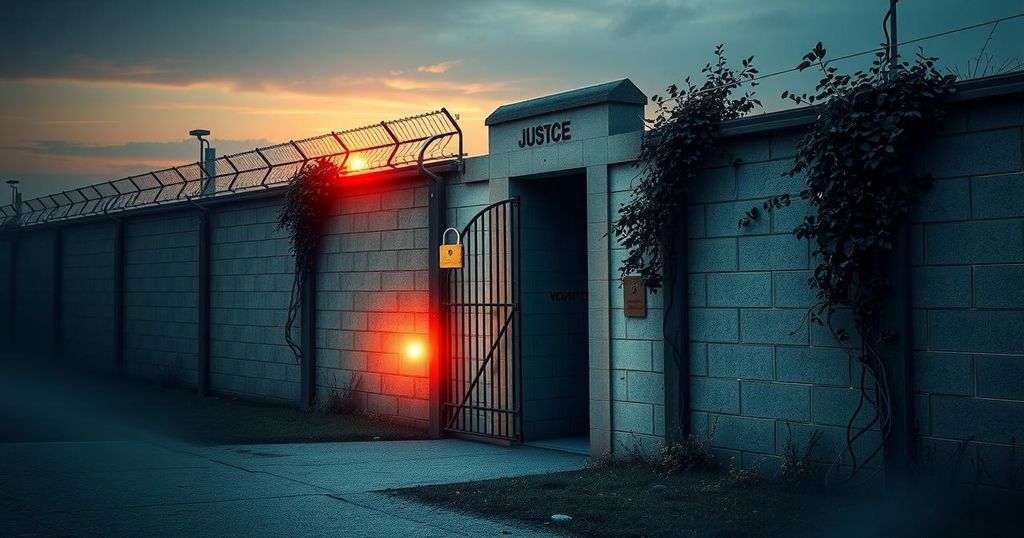Daniel Khalife Sentenced for Espionage and Prison Escape

Daniel Khalife, a former British soldier, has been sentenced to over 14 years for spying for Iran and escaping from a London prison. He gathered sensitive military information and fled by hiding under a food truck, prompting a massive manhunt. His actions breached national security laws, and significant failings in prison security were highlighted following his escape.
Daniel Khalife, a former soldier in the British Army, has been sentenced to 14 years and 3 months in prison after being convicted of espionage for Iran and for escaping from Wandsworth prison. Khalife, 23, gathered sensitive information, including names of special forces personnel, and transmitted it to Iranian authorities. His escape involved concealing himself beneath a food delivery truck, leading to a 75-hour nationwide manhunt before his arrest.
During sentencing, Mrs. Justice Bobbie Cheema-Grubb remarked on Khalife’s potential as a soldier, but criticized his actions as foolish and dangerous, stating he thrived on the notoriety of his escape. Despite his claims of having planned to surrender, the judge dismissed this notion, describing him as an attention seeker. Khalife’s conduct violated the Official Secrets Act and the Terrorism Act, resulting in a trial at Woolwich Crown Court in November, where he was found guilty.
Khalife’s connection to Iranian intelligence began shortly after he joined the Army in September 2018, escalating quickly as he engaged with contacts via social media and attempted to pass along compromised information. One incident involved him collecting a payment disguised in a dog waste bag in London for purported espionage activities. Despite his unlawful intents, the intelligence agency MI6 disregarded his overtures, believing his communications were trivial.
Evidence presented during the trial included images of classified military equipment on Khalife’s phone, although the total number of documents sent to Iran remains unknown. It was revealed that Khalife had compiled a list of soldiers’ names, including those in special forces, an act that posed significant risks to national security. He contended that information he shared was either false or of little value while admitting to sending classified materials related to military technology.
Following his escape, Khalife made attempts to re-establish contact with Iranian operatives but received no replies. His capture, which occurred shortly after his escape, triggered significant police expenditure, amounting to over £250,000 for overtime due to the extensive manhunt involving over 150 officers. Khalife’s claims regarding his safety concerns in prison played a role in his decision to escape, a situation aggravated by a notable absence of staff on the day he fled, which the Ministry of Justice stated did not compromise prison security.
The fallout from Khalife’s actions led to security audits revealing significant failings within the prison system, including vital maintenance deficits. His case underscores the serious risks posed by insider threats within military ranks and highlights the imperative need for stringent oversight and security protocols to safeguard national defense against espionage and internal vulnerabilities.
This case highlights significant concerns regarding espionage within the military and the implications of insider threats. Daniel Khalife’s actions not only endangered national security but also amplified scrutiny of prison management practices. The manner of his escape reveals vulnerabilities in security protocols while emphasizing the critical need for robust oversight in both operational and detention environments, especially concerning individuals with access to sensitive defense information.
In conclusion, Daniel Khalife’s case serves as a stark reminder of the threats posed by espionage and internal security breaches within military establishments. His actions reflect serious lapses in both personal judgment and institutional security measures. The consequences of this case stress the importance of adequate surveillance and preventive measures to ensure national defense integrity against similar threats in the future.
Original Source: www.bbc.co.uk







